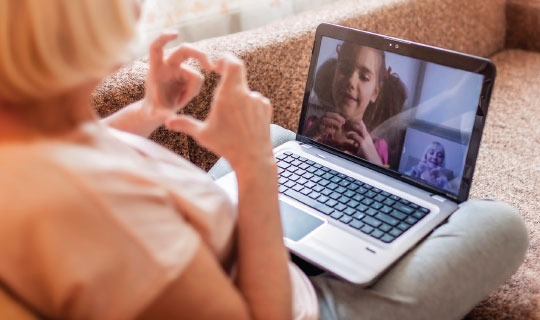Simple steps can help you regain a feeling of control
The COVID-19 pandemic has brought all kinds of uncertainty— to our finances, our health and our ability to make plans. “People have lost an important aspect of control over their activities,” says Frank Ghinassi, PhD, ABBP, Senior Vice President, Behavioral Health and Addiction, RWJBarnabas Health, and President and CEO of Rutgers University Behavioral Health Care. “As a result, we’re seeing a lot of people feeling stressed—and even a little more than that, feeling distressed."
“We all had a rhythm and routine for our days,” he continues, “from what time we took a shower to how we dressed for work to the kinds of things we did for fun. Now all of those old rhythms are challenged, and that makes people feel confused and off - balance.”
While that’s a perfectly normal reaction, Dr. Ghinassi says it’s important to take the next step. “Ask yourself, ‘What can I do in this new reality to help myself feel better and more in control?’” The answer lies in reintroducing predictability, to the degree possible in this unpredictable time.
Create a new routine.
“Establish a new set of patterns,” advises Dr. Ghinassi. “Go to bed and get up in a regular way. Eat at set intervals, not all day long just because you’re not far from the refrigerator. Work out or take a walk regularly. These new routines will become familiar and comforting.”
Make plans to socialize with others. “Meaningful connection with family and friends is not going to happen automatically,” says Dr. Ghinassi. “Create ways to communicate with people who are important to you, using FaceTime, letters, phone calls or whatever medium you do best. And keep in mind that Snapchat and Instagram are oneway communication, not true socializing.”
Build a new set of activities that give you pleasure.
“A lot of things we like to do can’t happen now because they involve going to crowded places like movie theaters, restaurants, concerts and stadiums. We need to find activities that will bring us pleasure and are doable within our current limitations,” says Dr. Ghinassi. “That could involve playing or listening to music, streaming films, gardening, painting or any other enjoyable hobby.”
If social distancing has led to behaviors that could be destructive, such as overeating or drinking too much, or if the blues have crossed the line into depression, don’t hesitate to reach out for help. “There are many front doors to behavioral health care,” Dr. Ghinassi says.
“You can ask a trusted health care provider to recommend a counselor. If your employer has an Employee Assistance Program, take advantage of that. Seek out your local mental health facility or call the New Jersey Hopeline at 855.654.6735. Call the RWJBarnabas Health Access Center, which is available 24/7, at 800.300.0628.”
And take heart.
“We’ll get through this,” says Dr. Ghinassi. “Humans are enormously adaptable. Through millennia of plagues, famines, wars and pestilence, we’ve risen to every challenge. It’s in our DNA. We’re going to learn and restructure, draw strength from each other and find solutions.”
